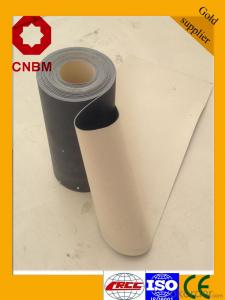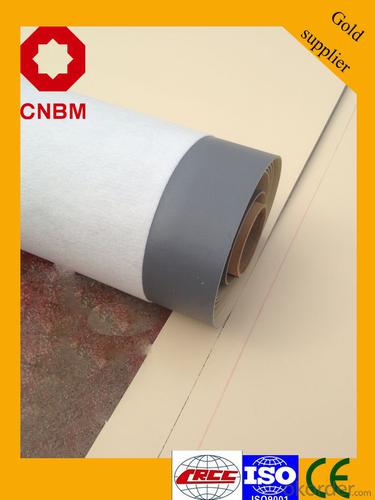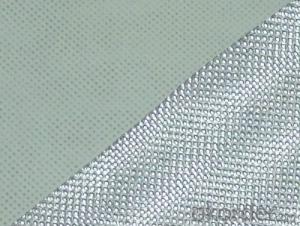Waterproof/Waterpfoofing Membrane For Roof
- Loading Port:
- Tianjin
- Payment Terms:
- TT OR LC
- Min Order Qty:
- 500 m²
- Supply Capability:
- 10000 m²/month
OKorder Service Pledge
OKorder Financial Service
You Might Also Like
Product description
Polyvinyl chloride PVC waterproof membrane is a kind of excellent performance of polymer waterproof material,PVC resin as the main raw material,add all kinds of special additive and anti-aging composition,the use of advanced equipment and advanced technology extrusion rolling is made.The product has the tensile strength and elongation high shrinkage of small,low temperature soft good,long life and other advantages, the products wide 1.2m to 3.0m, the thickness of 0.8-2.0 mm(special specifications can be customized),stable performance,reliable quality,construction is convenient.
Application Scope
The products are widely used in all kinds of civil construction,subway,tunnel,water conservancy,landfill site,chemical industry,metallurgy and other areas of waterproof seepage control,corrosion engineering
Features:
Excellent anti-aging property.
Puncture- resistant.
Welding construction,
High tensile strength, good elongation, good dimensional stability.
Good plasticity.
It has self-extinguishing from fire property.
Materials surface is smooth, fast color, stain resistance.
More wide, Wastage become less when being used.
Type:
N1—Exposed PVC waterproof membrane.
(It is mainly used as details treatment for exposed roof waterproof project)
N2—Non-exposed PVC waterproof membrane.
(It is mainly used as details treatment for non-exposed roof waterproof project)
L1—Exposed PVC waterproof membrane with fabric
(It is mainly used for exposed roof waterproof project)
L2—Non-exposed PVC waterproof membrane with fabric.
(It is mainly used for non-exposed roof waterproof project)
W1—Exposed reinforced PVC waterproof membrane .
(It is mainly used for steel structure roof exposed waterproof project)
W2—Exposed reinforced PVC waterproof membrane .
(It is mainly used for steel structure roof non-exposed waterproof project)
Advantages

Technical Parameters
No. | Item | Index | |||||
| 1 | Thickness of resin layer of the middle fabric ,mm≥ | - | - | 0.40 | 0.40 | 0.40 | |
| 2 | Tensile performance | Max tensile strength,N/cm ≥ | - | 120 | 250 | - | 120 |
| Tensile strength,NPa ≥ | 10 | - | -10 | - | - | ||
| Max elongation% ≥ | - | - | 15 | - | - | ||
| Breaking elongation % ≥ | 200 | 150 | - | 200 | 100 | ||
| 3 | Heat treatment size change rate%≤ | 2.0 | 1.0 | 0.5 | 0.1 | 0.1 | |
| 4 | Cold bonding | -25°c No cracks | |||||
| 5 | Watertightness | 0.3mPa,2h waterproof | |||||
Packaging & Shipping
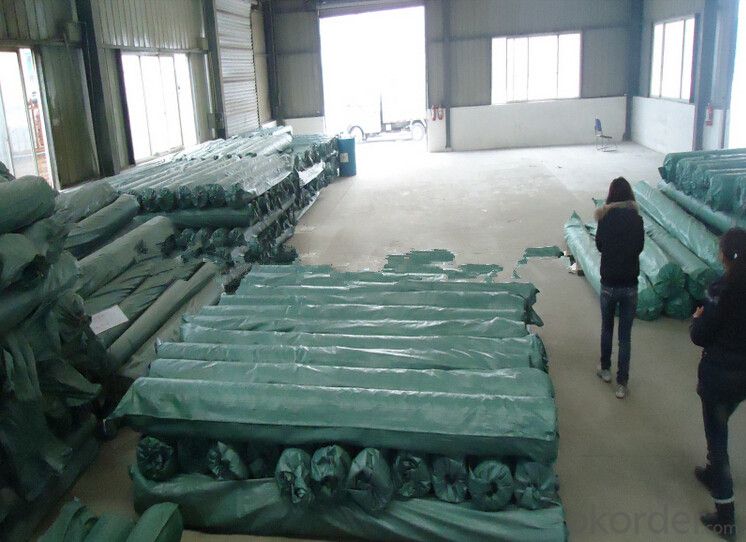
product show
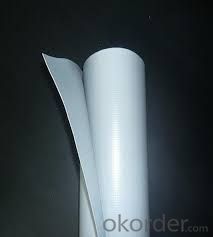
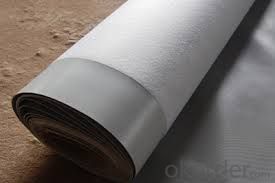
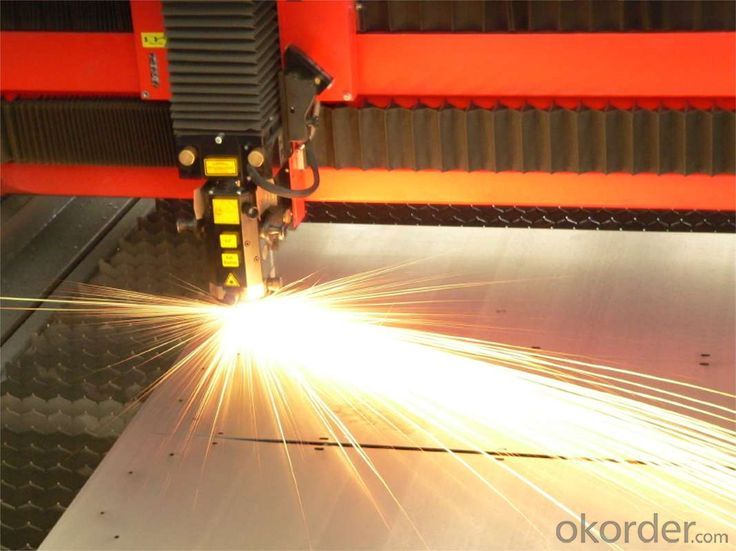
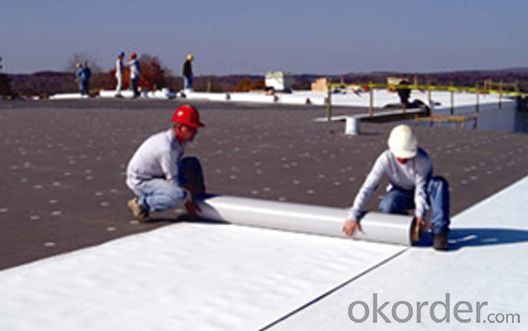
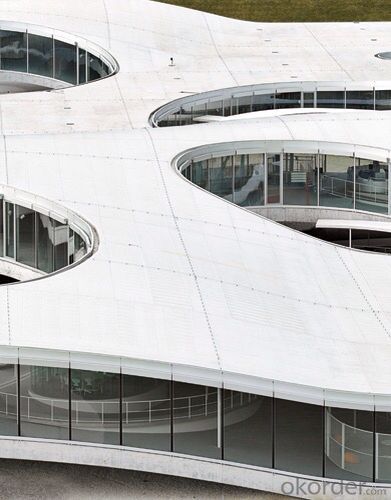
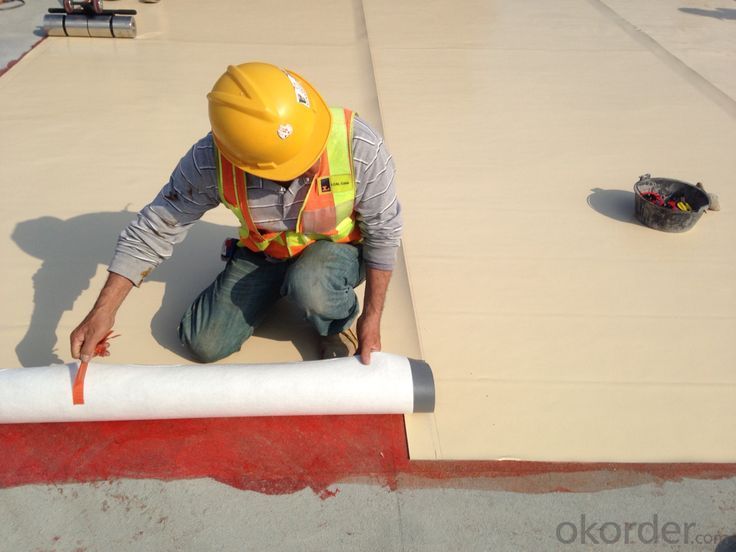
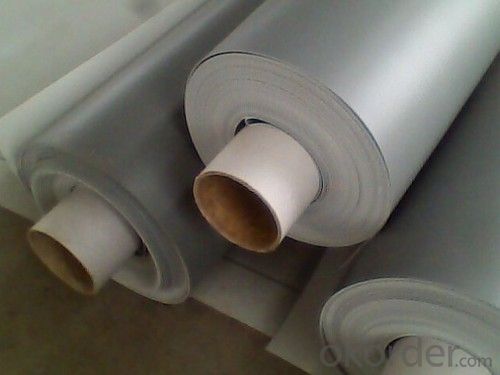
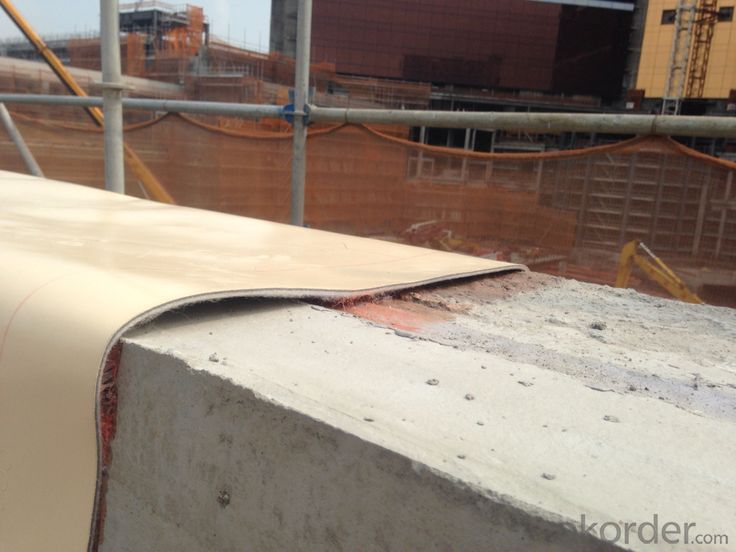
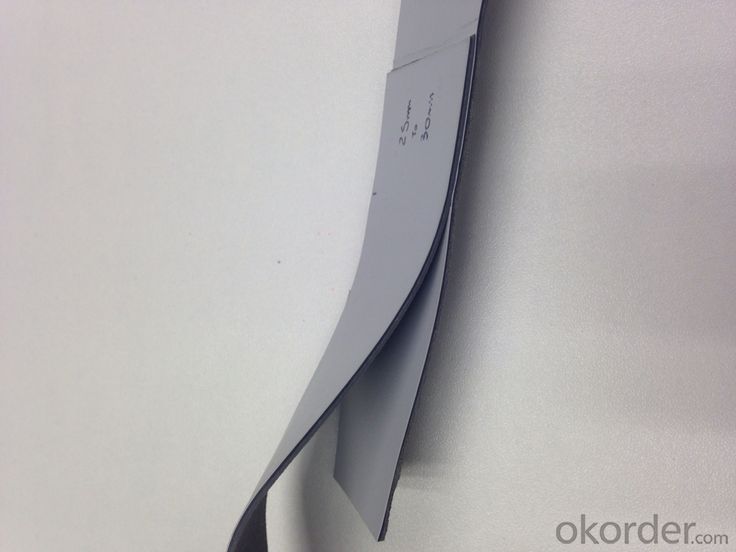
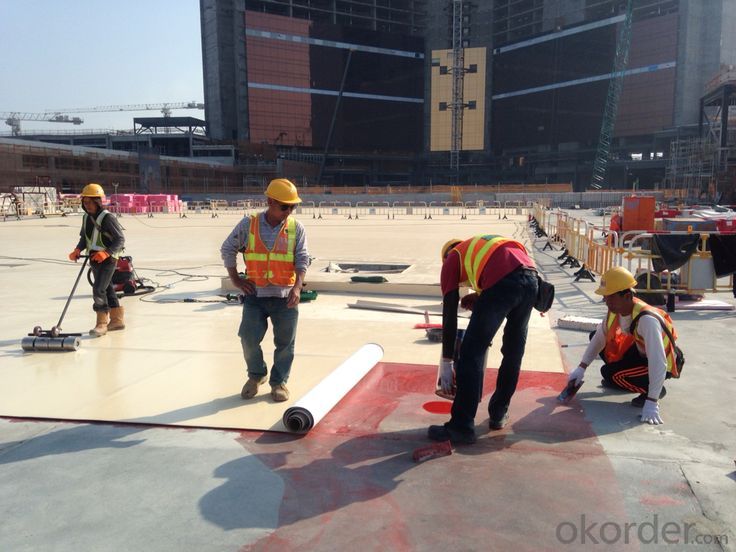
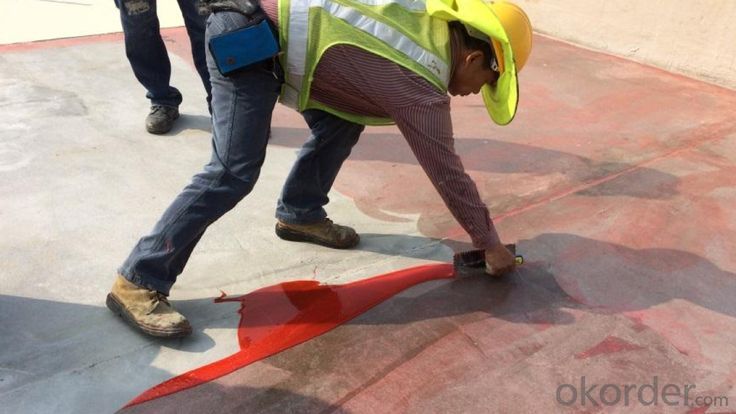
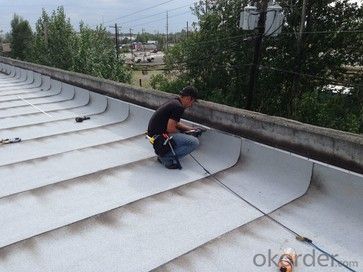
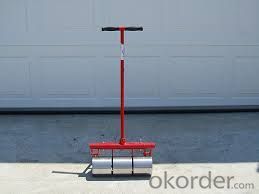
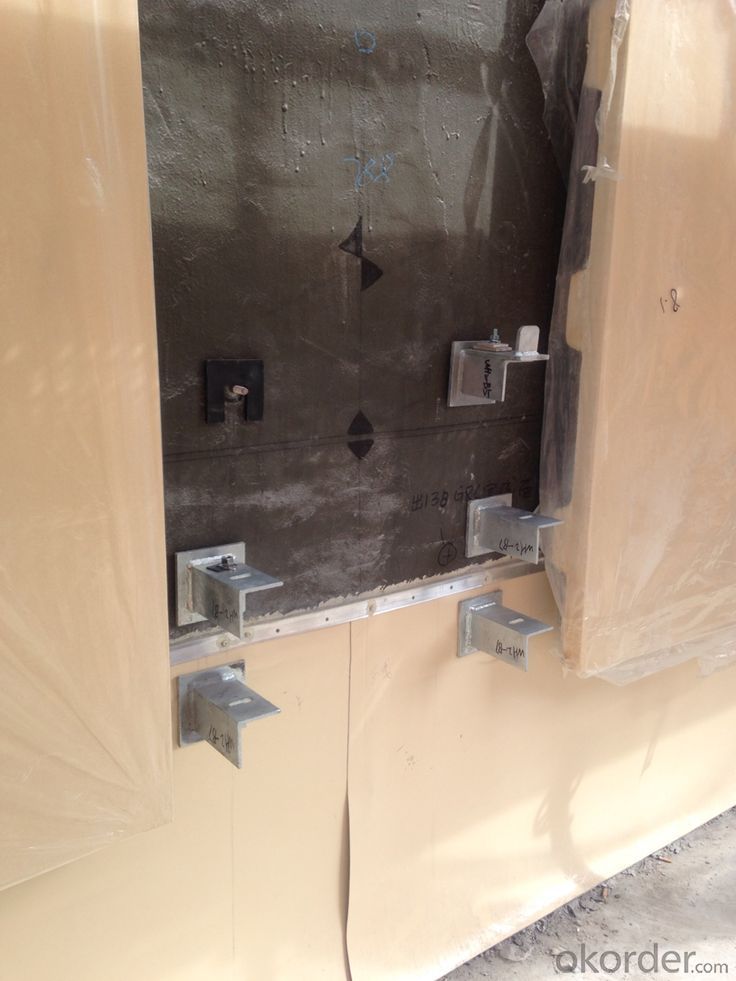
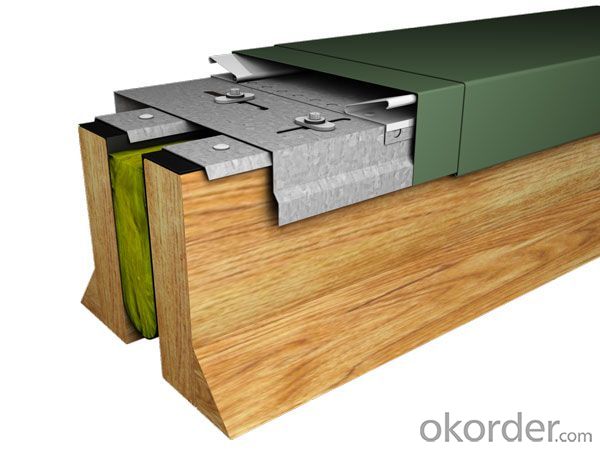
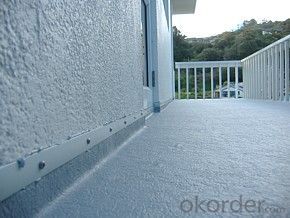
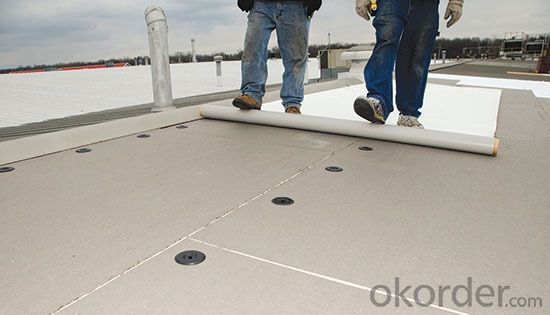
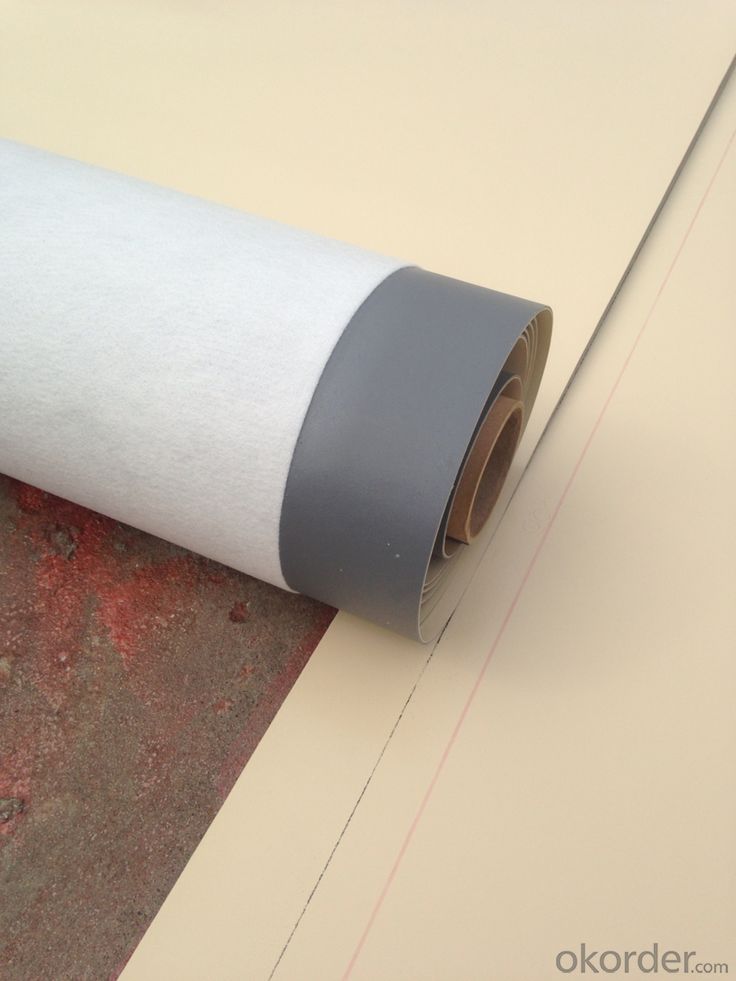
FAQ
Q: What's the delivery time ?
A: 3-5 days for 1-600 rolls, 10-15 days for container.
Q: What's the payment terms ?
A: TT/LC
Q: How do you make replacement with quality problems ?
A: New replacement will be packed into your next order or send to you directly after receive video or photo about quality problems.
- Q: Are waterproofing membranes resistant to chemical solvents?
- Waterproofing membranes are generally capable of withstanding chemical solvents. They are designed to endure exposure to different chemicals, including solvents. These membranes are formulated to create a barrier against moisture and safeguard against damage caused by chemical contact. The ability to resist chemical solvents is a crucial characteristic of waterproofing membranes, as it guarantees their durability and effectiveness in various applications like construction, roofing, and below-grade waterproofing. However, it is important to mention that the specific resistance of a waterproofing membrane to chemical solvents may differ based on the type and brand of membrane used. Therefore, it is always advisable to refer to the manufacturer's guidelines for detailed information on chemical resistance.
- Q: Are waterproofing membranes resistant to mineral oils?
- The resistance of waterproofing membranes to mineral oils can differ. Certain membranes are purposely engineered to withstand mineral oils, while others may not possess this capability. To ascertain the resistance level of a specific waterproofing membrane to mineral oils, it is crucial to review the manufacturer's specifications and product details. Moreover, seeking advice from a professional or directly contacting the manufacturer is advised to obtain tailored guidance regarding the compatibility of a waterproofing membrane with mineral oils in your unique scenario.
- Q: Can a waterproofing membrane be used for underground bunkers?
- Yes, a waterproofing membrane can be used for underground bunkers. Waterproofing membranes are designed to create a barrier against moisture, preventing water penetration into structures. This makes them an effective solution for underground bunkers, which are susceptible to water infiltration due to their underground location. By applying a waterproofing membrane to the walls and floor of the bunker, it can help to prevent water seepage and keep the interior dry. This is crucial for the protection of any stored items or occupants within the bunker. Additionally, waterproofing membranes can also provide added benefits such as insulation and protection against radon gas. It is important to ensure that the chosen membrane is specifically designed for underground applications and can withstand the unique conditions and pressures associated with being underground.
- Q: Can a waterproofing membrane be used on masonry surfaces?
- Yes, a waterproofing membrane can be used on masonry surfaces. It is a common practice to apply waterproofing membranes on masonry surfaces to prevent water penetration and protect the structure from moisture damage.
- Q: How thick should a waterproofing membrane be?
- The thickness of a waterproofing membrane depends on various factors such as the type of membrane, the specific application, and the level of protection required. Generally, the thickness of a waterproofing membrane can range from 0.5mm to 4mm. For below-grade waterproofing applications, such as basements or foundations, a thicker membrane is typically recommended to provide enhanced protection against water infiltration and potential hydrostatic pressure. In such cases, a membrane thickness of around 2mm to 4mm is commonly used. On the other hand, for above-grade applications like roofs or balconies, a thinner membrane can often suffice. A thickness of 0.5mm to 2mm is typically adequate to provide a reliable waterproofing barrier. It is important to note that the thickness alone does not determine the effectiveness of a waterproofing membrane. Other factors such as the material's composition, quality, and installation techniques also play a significant role in ensuring a durable and efficient waterproofing solution. Therefore, it is essential to consult with a professional waterproofing expert or manufacturer to determine the appropriate thickness based on the specific requirements and conditions of the project.
- Q: Are waterproofing membranes suitable for exterior use?
- Yes, waterproofing membranes are suitable for exterior use. They are designed to provide a protective barrier against water infiltration and can be applied to various exterior surfaces such as roofs, foundations, and walls. Waterproofing membranes are effective in preventing water damage and maintaining the integrity and longevity of the structure.
- Q: Can a waterproofing membrane be used for a tunnel waterproofing system?
- Yes, a waterproofing membrane can be used for a tunnel waterproofing system. Waterproofing membranes are commonly used in construction projects to provide a barrier against water infiltration, and they can effectively prevent water from penetrating into tunnels, ensuring their long-term durability and structural integrity.
- Q: Can a waterproofing membrane be used on brick surfaces?
- Indeed, brick surfaces can benefit from the application of a waterproofing membrane. These membranes have been specifically designed to create a barrier that effectively stops water from infiltrating. Notably, they have the versatility to be applied on various surfaces, including brick. By applying a waterproofing membrane to a brick surface, the risk of water damage is significantly reduced. This means that issues such as moisture seepage, which can lead to brick deterioration or the growth of mold, can be prevented. To ensure optimal results, it is crucial to select a waterproofing membrane that is compatible with brick and to closely adhere to the manufacturer's instructions during application. Seeking professional guidance is also advisable in order to choose and apply the most suitable membrane based on the specific requirements and conditions of the brick surface.
- Q: Are waterproofing membranes flexible?
- Yes, waterproofing membranes are typically flexible. They are designed to be able to expand and contract with the building materials they are applied to, ensuring a tight and secure seal to prevent water penetration.
- Q: Can a waterproofing membrane be used for foundation walls and footings?
- Yes, a waterproofing membrane can be used for foundation walls and footings. A waterproofing membrane is a thin layer of material, typically made of rubberized asphalt or polymer-modified bitumen, that is applied to the exterior surface of foundation walls and footings to prevent water penetration. It acts as a barrier, preventing water from seeping into the foundation and causing moisture-related issues such as dampness, mold, and structural damage. The waterproofing membrane is typically applied to the foundation walls and footings during the construction phase, either before or after the concrete is poured. It is important to ensure that the membrane is properly installed and sealed to provide effective waterproofing. The membrane is also commonly combined with other waterproofing techniques such as drainage systems and sump pumps to provide comprehensive protection against water intrusion. Using a waterproofing membrane for foundation walls and footings is a common practice in construction, especially in areas with high water tables or heavy rainfall. It is an effective and reliable method to prevent water damage and increase the longevity of the foundation. Properly waterproofing the foundation walls and footings is essential for maintaining a dry and structurally sound building.
Send your message to us
Waterproof/Waterpfoofing Membrane For Roof
- Loading Port:
- Tianjin
- Payment Terms:
- TT OR LC
- Min Order Qty:
- 500 m²
- Supply Capability:
- 10000 m²/month
OKorder Service Pledge
OKorder Financial Service
Similar products
Hot products
Hot Searches
Related keywords




